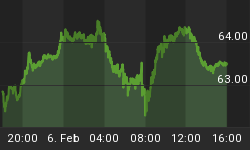Japan's government has fallen -- again:
Two-Party Japan Democracy Undone in 39 Months as DPJ Crumbles
It took 54 years for Japan's politics to produce a viable opposition party, and 39 months for it to self-destruct after winning power, splintering prospects for an enduring policy-driven two-party system.
The Democratic Party of Japan lost as many as three-fourths of its seats in Parliament's lower house three years after sweeping the Liberal Democratic Party from a half-century of almost unbroken rule. An LDP-led coalition was on track to win a two-thirds majority in the 480-seat chamber, broadcaster NHK said late yesterday.
While the DPJ's leaders came under fire for the response to the March 2011 earthquake and nuclear disaster, the biggest collapse in public support preceded the crisis. Undermined by a faction boss who later split and took about 50 seats with him, the DPJ flubbed its historic chance at the beginning by pledging to move a U.S. military base off Okinawa, then reneging on it.
"It was a missed opportunity for now to build a true two- party system," said Ellis Krauss, a professor of Japanese politics at the University of California, San Diego. "Japan's major challenges, including an aging society and a huge debt problem, would be manageable if only the political system weren't so dysfunctional. I'm fairly pessimistic the political leadership will confront the problems any time soon."
The DPJ was projected to lose at least 150 of its 230 seats in the lower house, which would be the worst showing of any governing party since the end of World War II. The Japan Restoration Party, led by ex-Tokyo Governor Shintaro Ishihara and Osaka Mayor Toru Hashimoto, was on track to win almost as seats as the DPJ making it the third, NHK projections showed.
'Couldn't Deliver'
"They talked big but they couldn't deliver," said Masatsugu Kitano, a 77-year-old company executive in Tokyo, speaking days before yesterday's election, referring to the DPJ. "My trust in political parties is basically zero."
Prime Minister Yoshihiko Noda, the DPJ's third premier in as many years, said he would quit as party leader. LDP leader Shinzo Abe, in line to reclaim the office he left in 2007, said voters "will be looking carefully at the LDP to see if we fulfill their expectations."
After governing for all but 10 months since 1955, the LDP was ousted in 2009 by the DPJ, which vowed to curb bureaucrats' power, cut public works spending and boost child support. Instead, the child payments were cut back and Noda this year pushed through a bill doubling the sales tax to cope with record debt, fulfilling a decade-long push by the Ministry of Finance.
With Japan's economy contracting and social welfare costs rising in the world's most-rapidly aging society, Abe will be under pressure to deliver the kind of results he couldn't last time. The DPJ remains the biggest party in the upper house of parliament, and could still rebound in elections for the chamber in July should the LDP prove a disappointment again.
Stocks Jump
Stocks climbed in the weeks leading up to the election as investors bet that Abe will follow through on speeches calling for the central bank to step up monetary stimulus. The Nikkei 225 Stock Average advanced 12 percent in the past month.
Yet Abe will inherit a recessionary economy, with electronics champions from Sharp Corp. to Sony Corp. struggling to cope with the yen's climb in the past half decade and intensified Korean competition. Public debt has grown by about a fifth since his last term in office, cut short by intestinal illness.
Some Thoughts
The point of this series is that once a country's debt exceeds a certain level the required interest payments become a headwind that makes growth impossible. Since growth is the key to political stability, excessive debt makes a society ungovernable. Here's a chart from a recent article by PIMCO's Bill Gross showing that historically, when public debt exceeds 90% of GDP, growth turns negative and inflation soars:

So for Japan, internal party politics or disagreements about US military bases are just symptoms of the underlying problem, which is its willingness to borrow insane amounts of money. In the aftermath of the stock/real estate bubble of the 1990s, Japan chose to prop up its failing banks and construction companies instead of letting them fail. It borrowed money for bailouts and public works programs that succeeded in staving off a collapse, but at the cost of ever-higher public debt. Today, no other major country's government debt/GDP ratio is even close to Japan's 200%.

Now the problem is being compounded by the retirement of the baby boom generation, which will push government spending up to levels that even a debt-free country would have trouble managing. No political party can fix this, so whoever is in charge will fail and be blamed for the failure. New people will be voted in, who will then see their high initial approval ratings evaporate. And so on, till the whole system implodes.
So the question isn't whether the next government will fix things. It can't because there is no fix. The question is whether the next government will preside over more low-level turmoil or the final implosion of a non-viable system.
This of course brings us back the US, which has chosen almost exactly the same path. Instead of liquidating three decades of malinvestment when we had the chance, we followed Japan's lead by propping up the banking/real estate/local government sectors with borrowed money. Where Japan recently chose to increase stimulus spending and pay for it with newly-created yen and a doubled sales tax, we are increasing government spending and paying for it with newly-created dollars and higher income taxes. Yet for some reason we expect a different result...
Click herefor the rest of the "Why We're Ungovernable" series.















